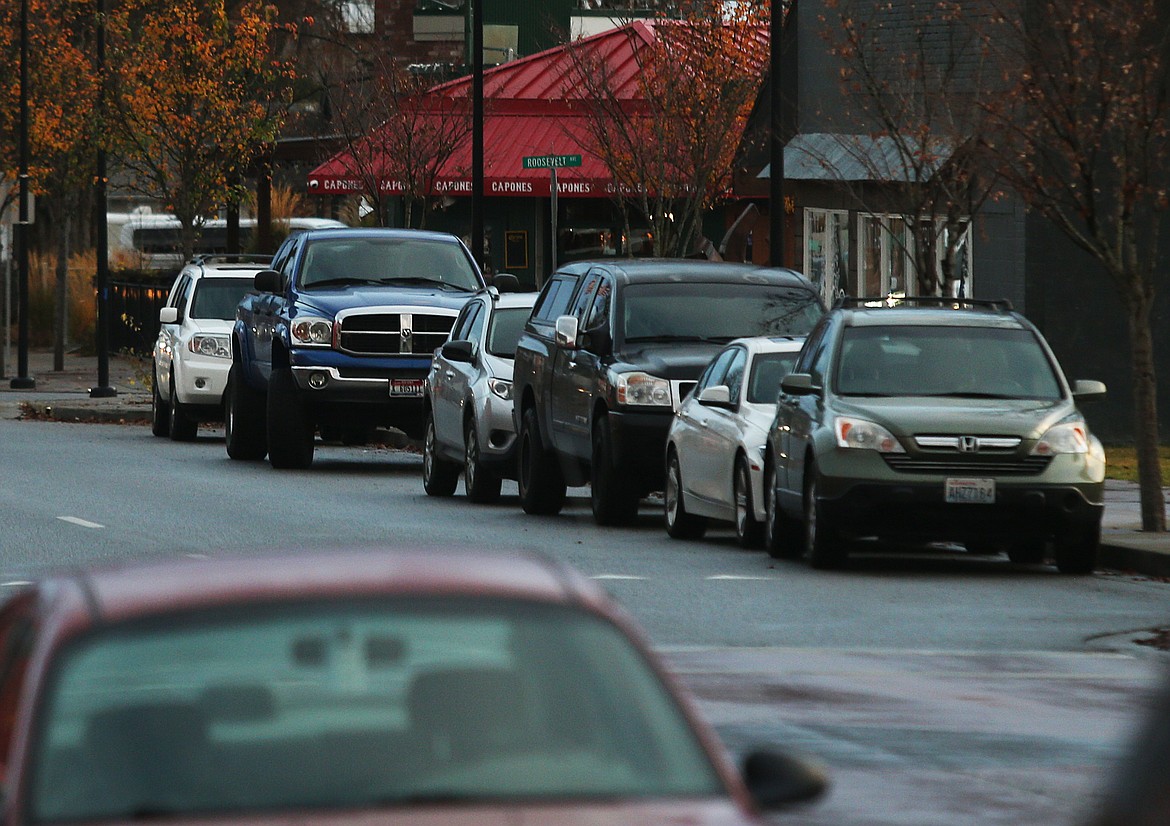Midtown residents respond to parking study
COEUR d’ALENE — It is the city’s job to provide parking in midtown and ensure parking problems don’t spill into residential neighborhoods.
That is the contention of one midtown resident who said at Monday’s public meeting with the city that an agreement made in the 1990s holds the city responsible for midtown’s parking issues.
“The city is just going to have to pay, because it owes it,” Dave Lyons told city administrators and the 50 people who attended the evening meeting at the Coeur d’Alene Library.
“You will protect the surrounding neighborhoods,” Lyons said. “That’s a promise the city made.”
The promise was made as part of a midtown revitalization plan, Lyons said, and although established businesses in midtown were grandfathered and exempt from providing parking for patrons or employees, the city agreed it would bear the burden if punching up the midtown economy harmed residential neighbors.
That has happened, especially in recent years, as a steady influx of traffic and visitors wine, dine and shop at midtown.
The result has been a lot of parking issues, caused not only by visitors to the shops and restaurants that clog residential driveways and streets, but from delivery trucks jamming narrow roadways and congesting traffic, especially in winter, residents said.
Monday’s meeting was to review an $8,500 traffic study contracted by ignite cda, the city’s urban renewal agency, in an effort to find a solution to midtown’s traffic woes. Public comments were gathered, and the study, along with Monday’s input, will be presented to the City Council tonight.
Neighbor Suzy Sindelar wants the city to find a way to keep business traffic, especially from semi-tractor trailers and vendors, out of residential zones.
“We’re hoping residential side streets don’t get used at all for loading,” Sindelar said. “They are just too narrow.”
Creating delivery zones, or delivery times, and requiring permits to park in neighborhoods around midtown, may be a solution, she said.
The parking study showed that the ratio of public to private parking in midtown is about 35 percent to 65 percent, and it should be closer to 50/50, according to the parking planners.
Mayor Steve Widmyer said the city has options, and a budget, to alleviate parking problems. They include increasing the number of public parking spots and paving the public lots and alleys. Illuminating routes, with lights and signs, from the existing free parking lots to midtown’s core between Foster and Boise avenues along Fourth Street, would make walking from a parking lot safer and more amenable. It is among solutions being considered.
“All that adds up to numbers and those funds need to be prioritized,” Widmyer said. “It’s not a blank check. We’re going to have to prioritize.”
City councilors will hear public comments before directing planners to pencil a plan for parking in midtown that will be up for further review. The process should be finalized early next year.

